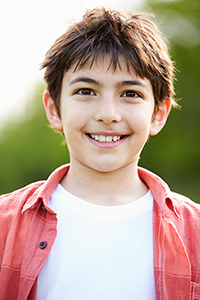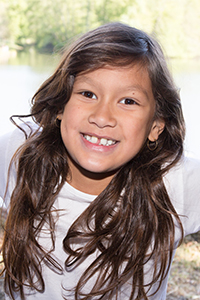Would you like a career that makes an impact on Montana children who are in need of loving & positive role models?
If you’d love to be part of an uplifting team in an active work environment that offers a robust benefits package including health insurance, sick leave, generous paid vacation, and 401k, join us today!
Learn more and apply online here!

Eli spent his first five months of life with his parents who used methamphetamine and other substances—substances that he was most likely exposed to in utero. Significant neglect led to his parents’ suspension of rights and he was placed with a foster family. Unfortunately, Eli experienced several serious illnesses that included hospitalizations and surgeries, and his aggression toward the many younger foster children in the home increased, leading to the family feeling that they could not continue to care for him and keep the other children safe. When Eli arrived at our Sunrise Children’s Home, he often melted into tantrums and was aggressive toward staff and the other children. He struggled in school. Slowly, trust began to build, and Eli was able to address topics that had previously shut him down. He talked about being embarrassed (feeling shame) and jealous of attention given to the other children, which often led to aggressive outbursts. With the help of his therapist, Eli began to practice relaxation and anxiety reduction exercises. His relationships began to develop, and his fear of rejection and abandonment lessened, leading to a greater ability to regulate his emotions and accompanying behaviors. He learned to play and garden with his peers to increase his communication and sharing skills, and his first stated goal of making friends became a reality, both within the Home and at school. Eli is very smart, and he began to realize his academic potential, and show his unstoppable sense of humor. Now Eli, who has affiliations to the Confederated Salish and Kootenai Tribes, lives with a Partnership for Children foster/adoptive family. His foster dad is a descendant of the Salish and Kootenai Tribes, and he spends time with his foster grandparents on the Flathead Reservation. His foster mom is a mental health professional who works with adults, and together they are creating a family. There is an undeniable connection between the three of them, and now, hope for the future. At Partnership for Children, that is what we call success. Thanks to all of you, for being a part of it.

Alice seemed too little to live in a group home, arriving only a few days after her fourth birthday. Her family had fallen apart due to drug use, and the level of abuse and neglect eventually led to her being placed with 11 different families—all of whom were deemed unsafe placements or called to say they could not provide the care she needed. Her first few days at the group home were filled with hiding from staff or avoiding the care of an adult, but it was obvious this little one was spunky, fun and resilient, and she was soon filling the house with joy and playfulness. She figured out she could convince her counselors to haul her around on piggyback rides or carry her on their hip while dinner was fixed, or other chores were completed. Someone was always there when the Head Start bus brought her home, arms wide open to sweep her up and hear about her day. She was getting the attention and predictable, safe care she missed as a toddler. She even began to tell her story, in her four-year-old way. It was time for her to join a family. And she did just that. Alice now lives with a Partnership for Children foster family—mom, dad, and a foster brother who also lived in a Partnership for Children Home before joining his now adoptive family. She got there in time to lose her first tooth. She got there in time to walk to the first day of kindergarten with her family in tow. She’s ready now, ready for birthday parties and friends, and ready to trust that the adults in her life will keep her safe. That’s the difference you make—to Alice that’s all the difference in the world.